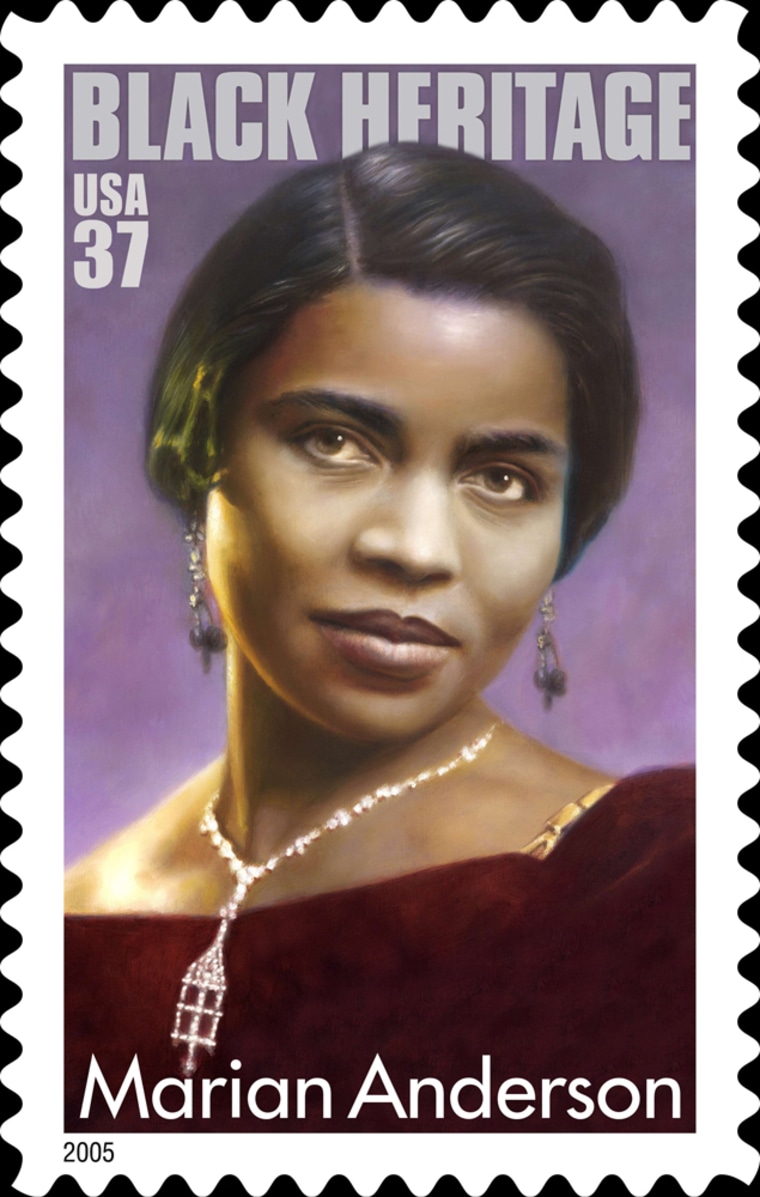Marian Anderson returned to DAR Constitution Hall for one more triumph on Thursday. Famed for her contralto voice, Anderson was honored on a U.S. postage stamp with first-day-of-issue ceremonies at the Washington venue where the singer was once denied a chance to perform because of her skin color.
"There is no one more richly deserving of such an honor," commented James DePreist, director of conducting at The Julliard School in New York and Anderson's nephew.
"I hope that it will give an opportunity for there to be a focus of attention on her, particularly her artistry," he said.
DePreist likened Anderson's success to that of Jackie Robinson, the first black major league baseball player.
"When history collides with what you just want to do, your career, then what happens depends on how much grace resides within you," he said. "It was the combination of talent and grace that enabled both Jackie and, in the case of my aunt, not only to be able to handle obstacles, but to be able to handle them in such a way they became inspirations.
"The power of my aunt resided in the power or her art," DePreist concluded.
The initial snub in 1939 caused first lady Eleanor Roosevelt to resign from the Daughters of the American Revolution and to arrange for Anderson to perform before thousands at the Lincoln Memorial.
In later years Anderson did perform at Constitution Hall, including a 1942 concert to aid World War II relief efforts, and she began her farewell tour there in 1964.
The 37-cent stamp shows an oil painting of Anderson by Albert Slark of Ajax, Ontario, Canada, based on a black-and-white photograph believed to have been made by Moise Benkow in Stockholm in the mid-1930s.
Deputy Postmaster General John M. Nolan called the stamp "a powerful reminder of her unprecedented contribution to music and to her great sacrifice for justice."
